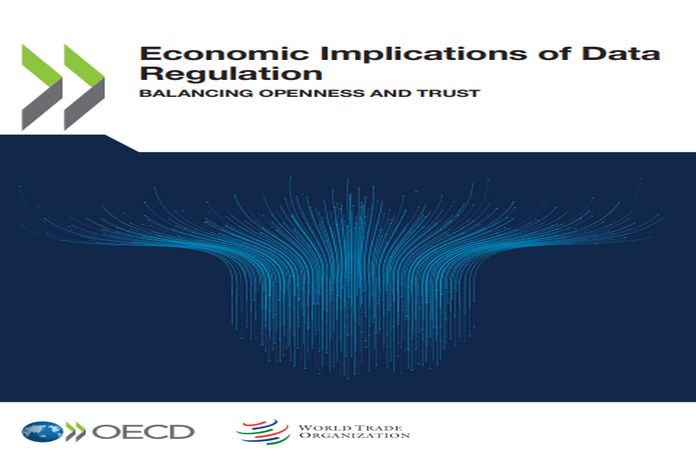GENEVA, Switzerland – A new report published 10 February by the WTO Secretariat and the Organisation for Economic Cooperation and Development (OECD) identifies the potential economic implications of regulatory systems for data flows across borders and data localisation. The publication underscores the benefits of open regimes that include safeguards and stresses the economic value of finding more convergent solutions to issues related to data regulation.
The report, entitled “Economic Implications of Data Regulation: Balancing Openness and Trust”, notes how data flows have become the lifeblood of social and economic interactions. At the same time, it highlights a surge in regulations conditioning data flows or mandating that data be stored or processed domestically.
The report notes that the implications of data flow regulations are not well understood, especially where they relate to finding a balance between enabling flows while also ensuring that data receives the desired safeguards when transferred abroad.
Drawing on information from a business questionnaire and analysis of data flows, the publication aims to help policy makers better understand the benefits involved in their regulatory choices.
The report looks into the potential costs of data flow regulation and the potential benefits that arise from growing trust in economic transactions undertaken within data protection frameworks.
It underscores that global solutions that balance free flows of data with the trust benefits of safeguards are likely to deliver better economic outcomes for countries at all levels of development. If open regimes that include safeguards were adopted by all economies, global exports would grow by 3.6 percent and global GDP by 1.77 percent, the report notes. Benefits would be highest for low and lower-middle income economies which could see their GDP rise by over 4 percent.
The report notes that “full fragmentation”, where all economies fully restrict their data flows, would lead to global GDP losses of 4.5 percent and reductions in exports of 8.5 percent.
However, the absence of data flow regulation is also associated with negative economic outcomes. If all economies removed their data flow regulation, trade costs would fall, but trust would also decline, the report says.
With regards to measures explicitly mandating local storage or processing of data, the report underscores that the impact depends on the type of measure implemented. Developing economies would benefit most from removing data localisation measures.
- The full report can be found here.





